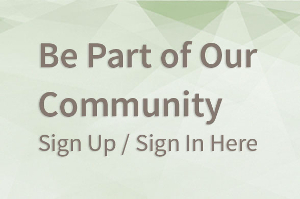BK Blog Post
5 Myths About What Your Employees Need From You
 Posted by
Charlotte Ashlock,
Executive Editor,
Berrett-Koehler Publishers Inc.
Posted by
Charlotte Ashlock,
Executive Editor,
Berrett-Koehler Publishers Inc.
Charlotte Ashlock is a crazy idealist trying to make the world a better place!
The following is excerpted from Marcia Reynold's book, The Discomfort Zone.
Many leaders operate with the assumption that if people want something they will ask for it. This belief is not true for many reasons, including cultural views on approaching authority and the negative implication ascribed to asking for help. You will miss opportunities to develop people if you don’t reach out to them. Check to see if you believe in any of these myths.
Myth 1: My employees don’t want me to ask questions. They just want me to give them answers so they can get back to work.
This is a myth of convenience. If you prefer not to spend the time on development conversations and fear challenging people to think differently, you will tell this story. But people enjoy learning and improving more than they like being dependent on you. According to the research compiled by Daniel Pink, two of the three major motivators of high performance are autonomy and mastery. If you want continuous great results, you need to continuously expand their minds.
Myth 2: If they need something from me or don’t understand something, they will ask.
No matter what your title is, people might not feel comfortable letting you know they can’t figure something out. They might have a history of other bosses, parents, and teachers belittling them for not knowing everything. People appreciate you asking, “What would be the best thing I could do to support you right now?” If they can’t think of anything specifically, offer the gift of your time. A private conversation could reveal an opportunity to expand their thinking.
Myth 3: No one is complaining, so everything is fine.
You may be a good leader but you aren’t perfect. Leaders who don’t spend time sitting with their people and asking questions about how things are going are out of touch with the challenges their people face. When you keep your fingers on the pulse of your team by asking about their challenges, opinions, and concerns, you will know what they need to maintain motivation.
Myth 4: If a good person does something bad, it won’t happen again. They will self-correct.
This is the most common rationalization for avoiding what could be a difficult conversation. Whether you worry that people won’t like you or they will react poorly and you won’t know what to do, you need to let people know when their actions have had an undesirable outcome. The sooner you share this information, the better. Then if you sense resistance, you can transition the conversation to embrace a coaching approach.
Myth 5: The best employees want to be left alone to do their work.
High achievers want positive feedback. They want recognition for their good work. They want a steady stream of interesting projects with indicators of success. And they want you to challenge their thinking so they can continuously grow. Don’t risk losing your best people.
When you trust in people’s capabilities for learning and growth, why wouldn’t you want to help them rise above their current proficiency? This should be your highest priority as a leader.
***
For more thinking on this topic, check out Marcia Reynold's book:






